So, you want to start a podcast? Or maybe you’re looking for a better podcast hosting platform to take your show to the next level? Whether you’re an experienced podcaster with your own website or just testing the waters, choosing the right podcast hosting service is paramount to your success.
Starting a podcast can seem daunting; after all, there are over 5 million different shows on Spotify alone, meaning you’ll face a lot of competition. Luckily, the barrier to entry into the podcast space is quite low. Even the most successful podcasts in the world are just people talking in a room. How hard can that be? With a solid game plan and the right podcast hosting service, your show can flourish.
From free podcast hosting services to premium podcast hosting providers, there are tons of options out there. But which one is right for you?
In this article, we’ll break down some of the best podcast hosting platforms for professionals and amateurs alike while also giving you some tips and tricks for getting your podcast up and running.
- Why You Should Start a Podcast
- How to Start a Podcast & Be Successful
- What is a Podcast Host?
- Why Do You Need Podcast Hosting?
- Choosing the Right Podcast Hosting Platform
- The Top 11 Best Podcast Hosting Platforms
- How a Podcast Can Help Build Your Brand
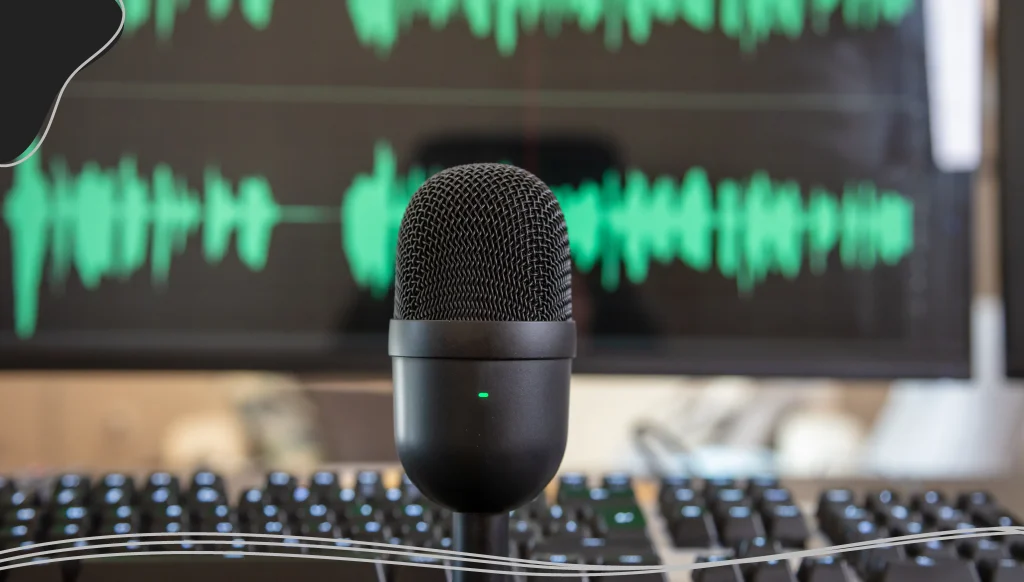
Why You Should Start a Podcast
In an era of information overload, podcasts offer an intimate, immersive experience that connects creators directly with their audience in ways traditional media could never achieve.
If you’ve been sitting on the fence, now is the perfect time to jump into the world of podcasting. Why? Because podcasts are more popular—and powerful—than ever.
Here are a few compelling stats and reasons to get started:
- Over 100 million Americans listen to podcasts each week, according to industry reports.
- The average listener spends 7+ hours per week tuned in to their favorite podcast apps.
- Apple Podcasts and Spotify remain the top podcast directories, but other platforms are seeing record growth as well.
- Podcast advertising revenue is projected to reach the $2.6 billion mark by 2026, making it one of the fastest-growing media segments.
Podcasts Offer More Than Revenue
Starting a podcast is not just about numbers. Podcasting offers a unique connection with your audience that few other mediums can match. It allows you to speak to your audience directly—often during moments of focus like commuting, working out, or relaxing.
It’s also more accessible than ever, thanks to free podcast hosting, budget-friendly equipment, and tools that let you launch your show with just a few clicks.
Whether you’re a creator, entrepreneur, educator, or hobbyist, podcasting is your ticket to influence, community, and even income.
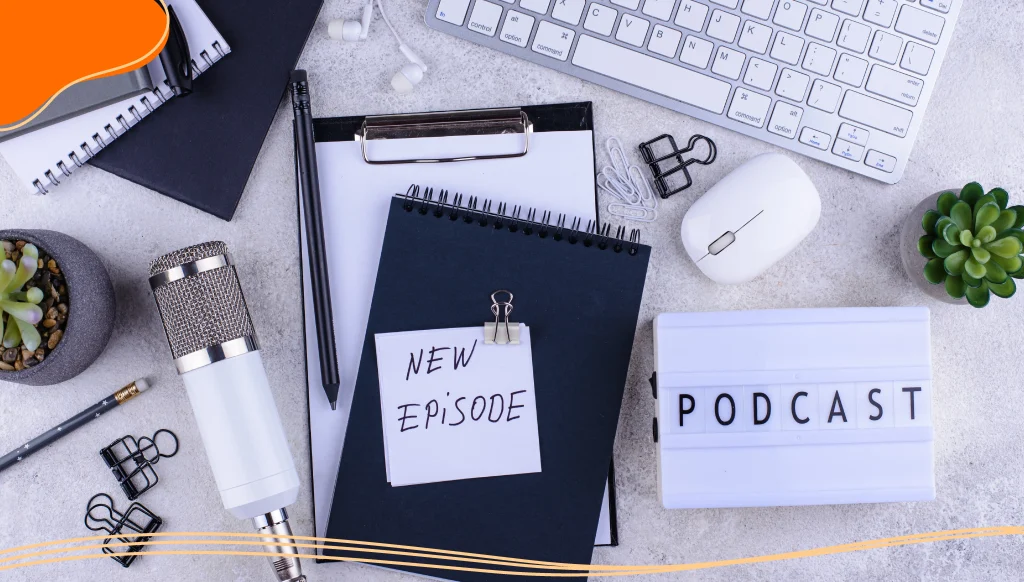
How to Start a Podcast & Be Successful
Starting a podcast may seem overwhelming, but with the right steps, you can set yourself up for success.
We’ve put together a step-by-step guide to help you through the process:
Step 1: Choose a Topic & Define Your Audience
Pick a topic that you’re passionate about and identify your target audience. Understanding who you’re speaking to will help shape your content.
- Identify your niche: What topic or theme will your podcast focus on? Whether it’s true crime, personal finance, or wellness, your niche should reflect your passions and expertise.
- Define your target audience: Who are the people you want to reach with your podcast? Understanding their demographics, interests, and pain points will help you tailor your content to their needs.
- Determine your unique selling proposition: What sets your podcast apart from others in your niche? Maybe it’s your unique storytelling style, expert interviews, or a fresh perspective on a common topic.
Tip: Use tools like Google Trends or Reddit to see what topics your target audience is buzzing about.
Step 2: Plan Your Episodes
Once you decide on a niche, you need to choose the format, episode length, and how often you’ll release new content. Having a content calendar can keep you consistent. It is said that 90% of podcasts don’t make it to episode 3. So, if you plan ahead and schedule your first batch of episodes in advance, you’re already ahead of 90% of your competition.
Step 3: Naming Your Podcast & Branding
Your podcast title should be memorable, unique, and relevant to your theme. Keep it short, easy to spell, and searchable. Before finalizing, check availability on podcast platforms, social media, and domain registrars.
When you’re just starting out, you might not think that branding your podcast is very important. But branding is a vital aspect of any online venture, podcasts are no exception. You want your branding to grab listeners’ attention and reflect your overall vibe.
- Create your podcast logo: Use tools like LogoMaker to make an eye-catching logo for your podcast cover art. Remember, appealing podcast artwork is vital for attracting listeners and enhancing your brand identity.
- Choose intro/outro music: Find royalty-free music on sites like Epidemic Sound or Free Music Archive.
- Write a compelling description: Summarize your podcast in a way that hooks potential listeners. A well-crafted podcast description can improve search visibility and attract more listeners.

Step 4: Get the Right Equipment
Invest in a good microphone, headphones, and recording software. You don’t need to break the bank, but clear audio quality is essential. Your primary focus should be clear, consistent sound that doesn’t distract from your content.
- Microphone: USB microphones like the Blue Yeti are beginner-friendly, or try a dynamic mic like the Shure SM58 for a richer sound.
- Headphones: Quality over-ear headphones like the Audio-Technica ATH-M50x ensure you hear every detail.
- Podcast editing software: Start with free options like Audacity or upgrade to Adobe Audition for advanced editing.
- Video recording: If you plan on starting a video podcast, you will need a way to record video. For beginners, using your phone to record your video podcast is totally sufficient.
- Recording environment: Create an acoustically-friendly space to minimize background noise and echo, which will improve your overall sound quality.
Step 5: Record & Edit Your Episodes
After you record your episodes, make sure to cut out any mistakes and enhance audio clarity. Editing polishes your podcast and ensures a smooth listening experience:
- Remove filler words, awkward pauses, and mistakes.
- Balance audio levels and remove background noise.
- Add music, sound effects, or voiceovers to enhance your episodes.
- Export your episodes as MP3 files.
Tip: It can be difficult to find time to record podcast episodes, especially if you are working a separate job in the meantime. To save time, record several episodes back-to-back and edit them in bulk. You can then publish the episodes based on your posting schedule.
Step 6: Choose a Podcast Hosting Platform
A podcast hosting service stores your episodes and distributes them to directories. We’ll go over a complete list of the best podcast platforms for hosting later on in this article. Once you select a hosting service, you can upload your episodes and generate an RSS feed.
Step 7: Create a Podcast Website
Having a podcast website adds credibility and serves as a central hub for show notes, links, and listener engagement. Consider using LogoMaker’s DIY Website Builder to bring your podcasting business to life in just a few minutes. With hundreds of templates, your website will have a professional and responsive design that works well on any device.
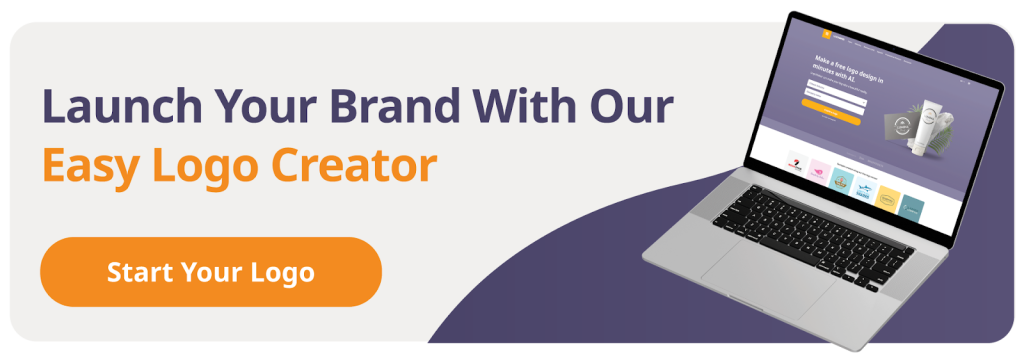
Step 8: Distribute Your Podcast
Submit your podcast to major podcast directories like Apple Podcasts, Spotify, and Google Podcasts for maximum reach. Many of these platforms will ask you to verify your ownership and link to your RSS feed before any podcast episodes can be posted. Make sure that you note down your login information so that you never lose access to your account.
Step 9: Promote & Market Your Podcast
Creating great content is only part of the equation—you also need people to hear it!
Here’s how to promote your podcast effectively:
- Leverage social media: Promote each episode across platforms like Twitter, Instagram, LinkedIn, and TikTok. Use audiograms (short audio clips with visuals) to grab attention.
- Collaborate with other podcasters: Guest appearances and podcast swaps introduce you to new audiences and help build authority.
- Encourage reviews and ratings: Ask listeners to rate and review your show, especially on Apple Podcasts. It boosts credibility and visibility.
- Use email marketing: Send updates to subscribers when new episodes drop. Include show notes, quotes, and bonus content.
- Tap into SEO: Write SEO-optimized show notes, transcriptions, and blog posts for each episode. This boosts discoverability in search engines.
- Paid promotion and ads: If you have the budget, consider podcast ads, social media boosts, or Google ads to get your show in front of the right audience.
Step 10: Monetize Your Podcast
Once you’ve built an audience, consider monetization options like dynamic ad insertion, sponsorships, Apple Podcasts subscriptions, or exclusive content. You can also sell ad space on your podcast website once you have a substantial enough following.
Sponsorships remain powerful, but targeted, values-aligned partnerships yield better results than generic advertisements. Many successful podcasters develop their own product lines or offer premium content through membership platforms.
Affiliate marketing can provide passive income when done authentically. Recommend products you genuinely use and believe in, creating trust with your audience.
Step 11: Track Analytics & Improve
Use podcast analytics to understand what’s working. Adapt your content and marketing strategies for continuous improvement.
What Is a Podcast Host?
As we mentioned earlier, one of the most important aspects of getting your podcast up and running is choosing the right podcast hosting platform.
A podcast host is a platform that stores and distributes podcast media files. They provide an RSS feed for submission to directories like Apple Podcasts or Spotify. A good podcast host can dramatically simplify the process of publishing and updating podcast episodes.
The other podcast host is the person who leads and manages a podcast by introducing topics, interviewing guests, and guiding the discussion.

Why Do You Need Podcast Hosting?
Podcast hosting is something you can handle yourself, but the process can be quite complicated. Self-hosting a podcast means storing your audio files on your own server (or a third-party file host), creating your own RSS feed manually, and handling all the tech behind podcast distribution.
Pros of Self-Hosting:
- Full control over your content and how it’s delivered.
- No reliance on external podcast hosting providers.
- Can potentially save money if you already have server space.
Cons of Self-Hosting:
- You’re fully responsible for uptime, bandwidth, and speed.
- Creating and managing a compliant RSS feed takes technical skill.
- You’ll need to manually submit your feed to podcast directories.
- No built-in podcast analytics, dynamic ad insertion, or monetization tools.
Unless you’re very tech-savvy, using a professional podcast hosting site will save you time, energy, and headaches. It also gives you access to all the podcast hosting services, analytics, and marketing tools that make growing a show easier.
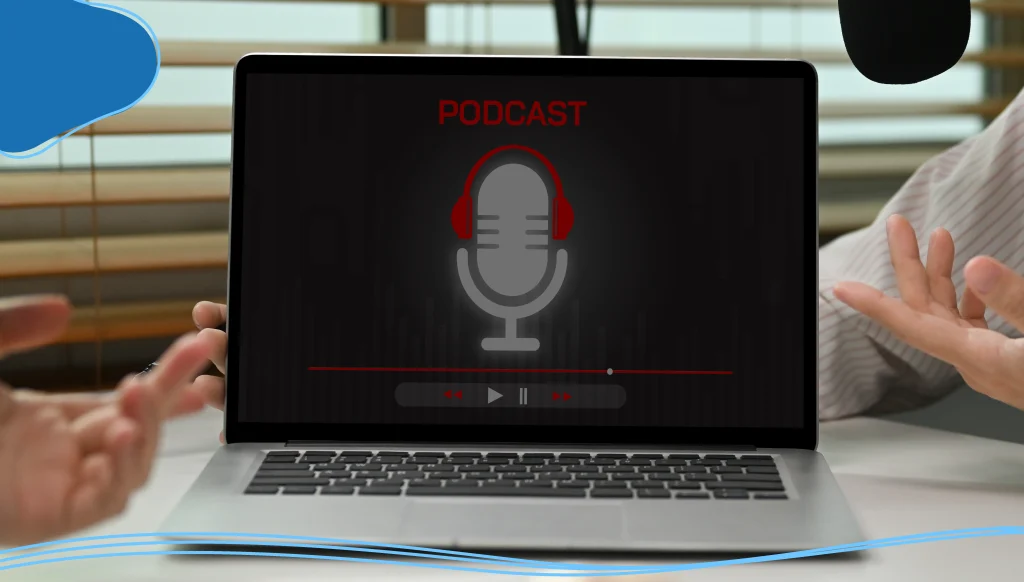
Choosing the Right Podcast Hosting Platform
Before we dive into the list, let’s talk about what makes a great podcast hosting platform.
Here are some key features to consider:
- Ease of use: You don’t want to spend hours trying to figure out how to upload your latest episode.
- Distribution: Your podcast should automatically be sent to top podcast directories like Apple Podcasts, Spotify, and Google Podcasts.
- Storage and bandwidth: Unlimited uploads and unlimited hosting are ideal for podcasters who produce frequent or long episodes.
- Analytics: Advanced analytics help you understand your audience and improve your content.
- Monetization: Features like dynamic ad insertion can help you earn money.
- Customization: A free podcast website, WordPress integration, or podcast player customization can be game-changers.
- Private podcasting: If you want to create private podcasts for members or employees, make sure the platform supports it.
Now that you know what to look for, let’s explore the best podcast hosting platforms!
The Top 11 Best Podcast Hosting Platforms
We’ve compiled a comprehensive list of podcast hosting sites, covering the key features of each option so that you can make an informed decision.
1. Buzzsprout: Best for Beginners
Buzzsprout is a fantastic podcast hosting site for those new to podcasting. With an intuitive interface, great marketing tools, and free podcast hosting options, it’s a top choice for beginners.
Key Features:
- Free podcast hosting service for up to two hours per month
- Distribution to major podcast directories
- Advanced analytics to track podcast growth
- Dynamic ad insertion for monetization
- A free podcast website with basic podcast features
Best for: New podcasters who want an easy-to-use platform with free options.
Price: Free plans offer 2 hours of fresh content per month. 250GB bandwidth per month. Podcasts are deleted after 90 days. Paid plans start at $12/month, providing up to 3 hours per month.
2. Libsyn: Best for Professionals
Libsyn is one of the oldest and most trusted podcast hosting providers in the podcast hosting world. If you’re serious about your show, Libsyn offers advanced features for professionals.
Key Features:
- Reliable podcast hosting solutions with detailed analytics
- Apple Podcasts subscriptions support for exclusive content
- Monetization platform with dynamic ads
- Ability to host multiple podcasts on one account
- Unlimited storage options depending on the plan
Best for: Experienced podcasters who need a robust hosting provider.
Price: $7 per month, including 3-hour uploads and 162MB storage on the starting plan.
3. Podbean: Best for Monetization
Podbean is an all-in-one podcast hosting platform that includes monetization options, unlimited hosting, and video podcasts.
Key Features:
- Free podcast hosting with limited storage
- Monetization platform with ads and listener donations
- Video podcast support
- Private podcasting options
- Podcast distribution to major podcast directories
Best for: Podcasters who want built-in monetization options and unlimited uploads.
Price: Free plan allows you to upload 5 hours of fresh content per month. 100GB bandwidth per month.
4. Spotify for Podcasters: Best Free Podcast Hosting Platform
Spotify for Podcasters (previously Anchor) is one of the best free podcast hosting platforms available. If you’re looking for a free hosting platform with unlimited podcasts, this is it.
Key Features:
- 100% free podcast hosting with unlimited storage
- Direct podcast distribution to Spotify and Apple Podcasts
- Podcast analytics and monetization options
- Create private podcasts for a select audience
- Support for audio and video content
Best for: Beginners and those who want completely free podcast hosting.
Price: Spotify for Podcasters is free to use.
5. Transistor: Best for Podcast Networks
If you want to host several podcasts, Transistor is a great choice. It’s perfect for businesses or podcast networks.
Key Features:
- Host multiple podcasts under one account
- Advanced analytics and podcast growth tracking
- WordPress plugin for easy integration
- Private podcasting features
- Free podcast website with customization options
Best for: Businesses, brands, and podcast networks.
Price: $19 per month on an annual contract. You can upload unlimited new content per month.

6. Castos: Best for WordPress Integration
Castos is an excellent podcast hosting service for those who use WordPress. It offers a seamless WordPress plugin that allows you to publish episodes directly from your WordPress website.
Key Features:
- Unlimited hosting and unlimited team members
- Automatic podcast feed updates
- Private podcasting for premium subscribers
- Advanced podcast analytics
- WordPress integration for easy publishing
Best for: WordPress users who want full control over their podcast distribution.
Price: $190 per year with unlimited podcasts, unlimited upload, and unlimited download limit.
7. Blubrry: Best for Analytics
Blubrry has established itself as a reliable and user-friendly platform for beginners and experienced podcasters. One of its standout features is a powerful analytics dashboard that allows users to track downloads, subscribers, and listener engagement.
Key Features:
- Robust analytics dashboard providing detailed insights into your audience’s demographics
- Unlimited storage and bandwidth for all plans
- Integrated WordPress plugin
- Options for embedded players and automatic publishing on social media platforms
- Dynamic ad insertion for monetization options
- Affiliate program where creators can earn revenue by promoting other shows within the network
Best for: Experienced podcasters looking to make the most of advanced analytics.
Price: $12 per month. The starter plan allows you to upload 125MB of new content per month. Unlimited bandwidth per month.
8. Simplecast: Best Ease of Use
Simplecast has quickly become a go-to choice for amateur and professional podcasters. Its intuitive interface and comprehensive features make it one of the top contenders for the best podcast hosting site. It also allows podcast distribution to multiple platforms.
Key Features:
- Easy-to-use dashboard
- Advanced analytics tools
- Unlimited uploads for all users
- Connect easily with streaming services
- Allows podcasters to earn revenue by inserting targeted ads
Best for: Inexperienced podcasters looking for a hosting platform with a short learning curve.
Price: $15 per month comes with unlimited storage and uploads. Allows for 2 team member seats.
9. Spreaker: Best for Automation
Spreaker has over 100,000 active shows and millions of listeners worldwide. It offers an all-in-one solution for creating, distributing, and monetizing podcasts.
Key Features:
- Automatically publishes podcasts to Apple, Spotify, and Google Podcasts
- Offers live broadcasting functionality
- Live chats with the audience
- Patronage system where listeners can support their favorite shows by making monthly donations
Best for: Podcasters that prioritize automation.
Price: Free. You can upload episodes to iHeartRadio (account needed), Spotify, and Apple Podcasts.
10. Audioboom: Best for High-Profile Shows
Audioboom has established itself as a leading global podcasting publisher platform. It boasts an impressive list of high-profile clients such as NBC Sports, BBC Radio, and The Guardian.
Key Features:
- Unlimited storage and bandwidth in all plans
- Detailed analytics on downloads and listens per episode
- Automatically distribute your episodes to significant podcast platforms
- Dedicated marketing team actively promotes shows on its platform through social media campaigns
- Offers branded content opportunities
Best for: Shows with a large audience that are looking for advanced support and promotional opportunities.
Price: $12.99 per month, includes unlimited uploads per month, 10,000 plays per month, and distribution across Apple, Spotify, iHeartRadio, Google Podcasts, and Stichter.
11. Soundcloud: Best For Audience Engagement
SoundCloud is possibly one of the first names that come to your mind when you think of podcast hosting platforms. Originally designed to host podcasts, the platform quickly became the go-to site for artists and creatives to share their passion for music.
Key Features:
- Designed primarily for audience engagement
- Can engage with fans with direct messages and comment sections
- Listeners can easily download your podcasts from the company’s designated app
- Access to a large user base, 175 million unique listeners are tuning in each month
Best for: Podcast hosts looking to create a strong, dedicated following.
Price: Free plan offers up to 2 hours of upload time.

How a Podcast Can Help Build Your Brand
One of the biggest reasons professionals, entrepreneurs, and content creators start podcasts is brand building. Podcasts provide a unique opportunity to establish your voice, grow your credibility, and connect more deeply with your audience.
Here are some of the main ways that starting a podcast can help boost your brand.
Humanize Your Brand
Your voice is personal. Through storytelling, interviews, and thought leadership, your podcast helps listeners get to know the human behind the brand. That emotional connection builds loyalty.
Show Authority in Your Niche
Regular episodes allow you to share insights, expertise, and opinions that position you as a thought leader. Over time, your audience begins to see you as the go-to voice in your space. Consistent, valuable content helps create a loyal audience who sees you as a reliable source.
Drive Traffic to Your Website
A podcast website or integration with a WordPress website can help direct listeners to your blog, services, or store. Add clear CTAs in each episode and show notes.
Increase Discoverability
By being on top podcast directories, your show can attract new followers who haven’t yet discovered your brand elsewhere.
Content Repurposing
Turn podcast episodes into blog posts, audiograms, social media clips, YouTube videos, and more. This multiplies your content marketing reach without starting from scratch.
Network with Influencers
Inviting guests to your show gives you a reason to connect with industry leaders, creators, and influencers. This can lead to more exposure and collaborations.
In short, podcasting is one of the most authentic, cost-effective, and high-impact ways to grow your brand in 2025.
Conclusion
Starting a podcast is a fantastic way to connect with your audience and grow your brand. In order for your podcast to be successful, you need to have a high-quality podcast hosting platform.
Choosing the best podcast hosting platform depends on your needs. Whether you’re looking for free options, unlimited storage, or advanced analytics, there’s a hosting provider out there for you. Look for a platform that offers scalability, flexibility, and ease of use. Evaluate the pricing options and features offered by the different hosting providers we presented in this article to find the best fit for your podcast.
So, are you ready to launch your successful podcast? With just a few clicks, you can be live on major streaming services, reaching listeners worldwide!
If you need to create a logo or podcast website for your new show, LogoMaker offers a wide range of marketing tools that can help you get your podcast up and running in no time!
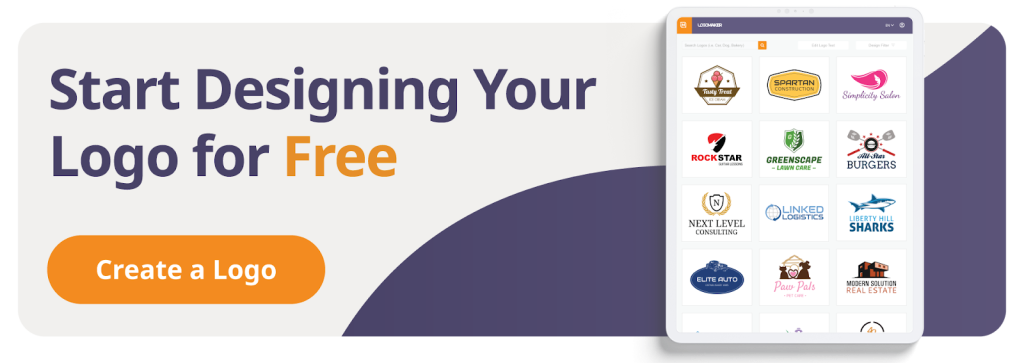
FREQUENTLY ASKED QUESTIONS
What is a podcast hosting platform?
A podcast hosting platform stores your audio files and distributes your episodes to podcast directories like Apple Podcasts and Spotify.
Can I host a podcast for free?
Yes. Platforms like Anchor and Podbean offer free podcast hosting with basic podcast website features.
Which podcast hosting service is best for monetization?
Podbean and Libsyn offer the best monetization platform options, including dynamic ad insertion and Apple Podcasts subscriptions.
Can I host several podcasts on one account?
Yes. Transistor, Castos, and Libsyn allow you to host several podcasts from a single account.
What are the best podcast apps for listening?
Apple Podcasts, Spotify, and Google Podcasts are the top podcast apps for discovering and listening to podcasts.
Do I need a website for my podcast?
While not required, a free podcast website can help with podcast growth. Many hosting platforms offer free podcast website options.
What’s the difference between free podcast hosting and paid plans?
Free podcast hosting usually comes with limited storage and fewer features, while paid plans offer advanced analytics, unlimited uploads, and private podcasting options.
What are podcast analytics, and why do they matter?
Podcast analytics give you data on downloads, listener locations, devices used, and more. These insights help you refine your content, target marketing efforts, and attract sponsors.
How can I get listed on Apple Podcasts and other directories?
Most podcast hosting services offer automatic distribution. If not, you can manually submit your RSS feed to Apple Podcasts, Spotify, and other directories through their respective portals.
Can I switch podcast hosting platforms later?
Yes, and many platforms offer tools to import your podcast feed, analytics, and even listener data. Just be sure to set up proper 301 redirects so you don’t lose your subscribers.



